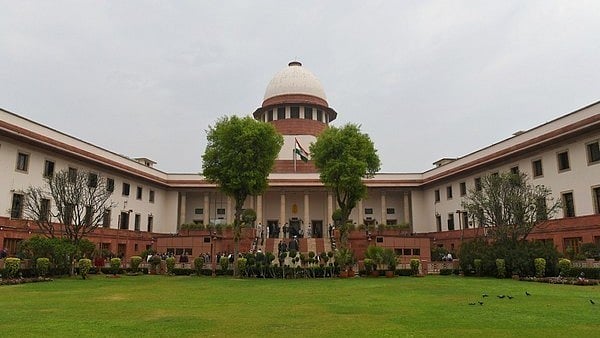
The Supreme Court of India.
Credit: PTI Photo
New Delhi: Just after the pronouncement of the judgment declaring Tamil Nadu Governor’s decision to withhold assent to 10 bills was "illegal" and "arbitrary", the Kerala government on Tuesday asked the Supreme Court's bench led by Chief Justice of India Sanjiv Khanna to list its writ petition on delay by the Governor in giving assent to bills, before the bench headed by Justice J B Pardiwala.
Senior advocate K K Venugopal on behalf of the Kerala government made the request before the bench also comprising Justice Sanjay Kumar.
The CJI suggested adjourning the matter, indicating his retirement, scheduled on May 13.
Venugopal said seven bills are pending with the state's Governor and the judgment in the Tamil Nadu case adequately covered the state's problem with its own Governor.
The CJI said the judgment has been delivered and let it be examined.
"The problem is this, for two-three years the bills have been kept pending. Can you imagine," Venugopal asked.
The CJI said the judgment has been pronounced Tuesday morning.
"We will know about the contents and the directions given in the judgment," the bench said.
Venugopal asked the bench to list the instant matter before the bench led by Justice Pardiwala.
The court said it has listed tentatively on May 13, possibly before another bench. The CJI did not specify that it would be before Pardiwala-led bench despite repeated appeals made by the senior counsel for the Kerala government.
Kerala government had moved the apex court claiming inaction on the part of the Governor in relation with several bills passed by the state legislature and presented to the Governor for his assent under Article 200 of the Constitution.
In its plea, the state government sought a declaration that the actions of the Governor in withholding Bills indefinitely without exercising discretionary power under Article 200 of the Constitution are "contumacious, arbitrary, despotic and antithetical to the democratic values, ideals of the Cabinet form of Government, and principles of democratic Constitutionalism and federalism".
